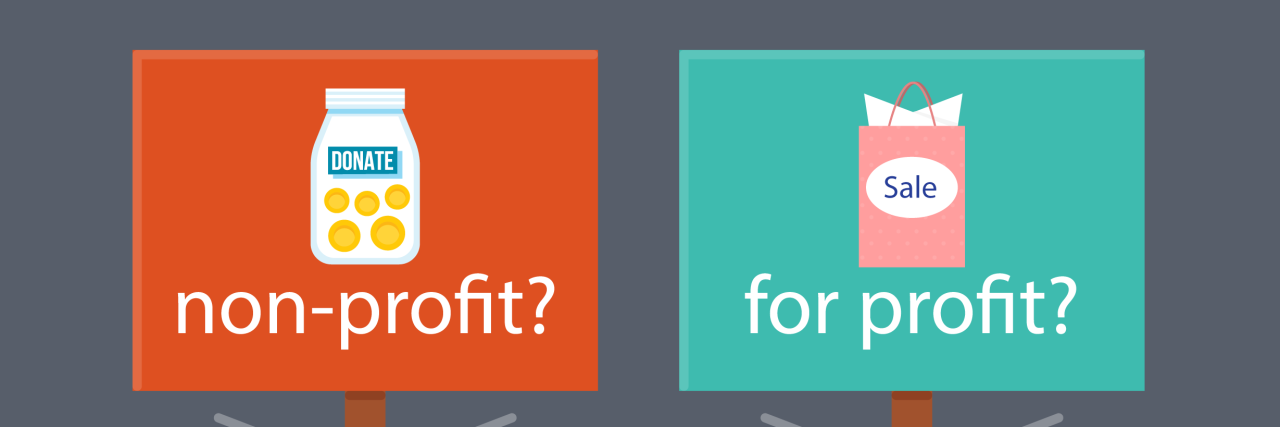There is much debate among the entrepreneurial community as to whether your business should be a for-profit or non-profit. We certainly cannot speak for everyone, but we encourage those we call #JobCreators (entrepreneurs with disabilities) to be for-profit. Let’s compare the two so you can understand why.
Sustainability
In the state of Florida alone there are over 80,000 non-profits. Each and every one of them is in direct or indirect competition with the others for funding that comes largely from public and private grants. Why is that noteworthy? The very life of a non-profit is directly dependent on one’s ability to tap into these grant opportunities. Why does that directly call into question sustainability? Funding comes and goes. You may receive a grant today that carries the business for a year, but every grant has a term and you need to reapply for that grant at the end of that term. Or worst case scenario, the grant is done away with altogether and the source of funding completely disappears.
A non-profit model can not only limit the necessary innovation and adaptability of entrepreneurship, it also derails the focus of the #JobCreators model. Instead of the business investing its core efforts on developing a solid product/service and ensuring the employment experience is meaningful to the person with a disability, a non-profit can at times be forced to focus more on fundraising. This means the nature of the business may change in order to be more attractive to funders while losing sight of the impact it may have on the business owner. On the other hand, a for-profit can stand and survive on the very merits of the product or service of the business, its market and even the simple story behind the business owner. As markets change and evolve, so can the business, as well as its products and services.
Structure
A business created based on the #JobCreators model is a venture focused on the individual with a disability. A non-profit is a lot more complicated. Non-profits require a board of directors that have a direct impact on how the organization is operated. It even has the power to decide how it offers its products/services and most importantly, its power of decision would override the self-determination desired for a business owner with a disability. Additionally, how would one ensure that the board of directors of a non-profit will continue to operate the business with the interest of the owner in mind? Unfortunately, you cannot pre-determine who will be on the board of directors. Such individuals are voted in, and other board members have the right to vote other board members off. Long-term, such a structure could be difficult to manage, and certainly impossible to control.
With a for-profit, the decisions for the business should be guided by the interests of the person with a disability and those decisions should be made exclusively with the idea of ensuring that the employment experience is and always will be meaningful to that person. Additionally, a for-profit business is an asset you own. Long-term control is completely yours and there are many ways to set up a structure that will determine exactly how and who you want to run the business for the lifetime of the business. In summary, as a for-profit, the owner decides exactly what they want to do with the business without having to confer nor seek approval from a board of directors.
Profit
Think of the names. Non-profit; For Profit. Doesn’t that say it all? Legally a non-profit cannot take proceeds generated by the business and purchase items for personal gain. Strict rules govern how money is utilized within a non-profit. Misuse can land you in lots of trouble.
We are not saying the sole purpose of a for-profit is to buy things. But more importantly, a for-profit does not limit the owner from purchasing anything at all. Just like in any other business, bonuses, perks and raises are the norm. If the business does well, re-investing in it for long-term success is critical, but the entrepreneur has certainly earned the right to purchase personal items with the profits.
Of course, as with anything, we always encourage each person to assess the pros and cons of both for-profit and non-profit businesses. However, our #JobCreators model is laser focused on the needs of the entrepreneur with a disability and we find that a non-profit organization is unable to sustain that focus. For this reason we always encourage start-ups to be for-profit.
This story originally appeared on picassoeinstein.com

